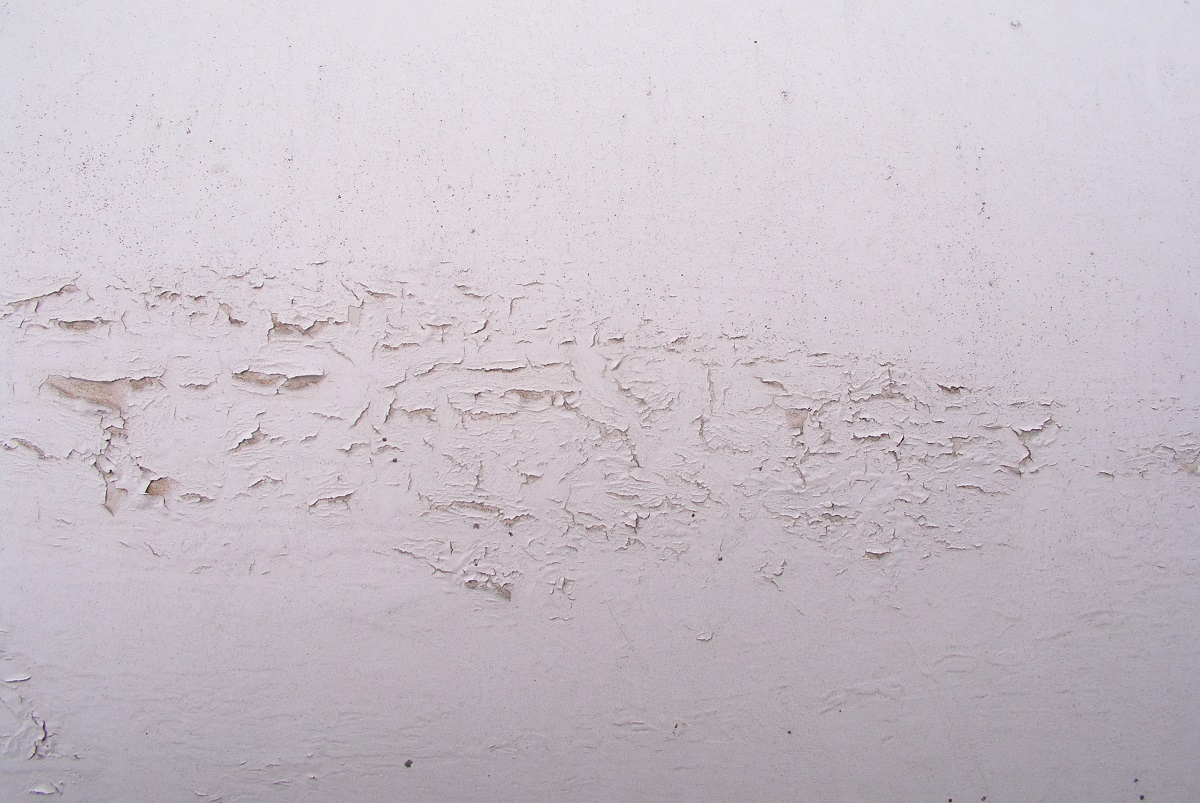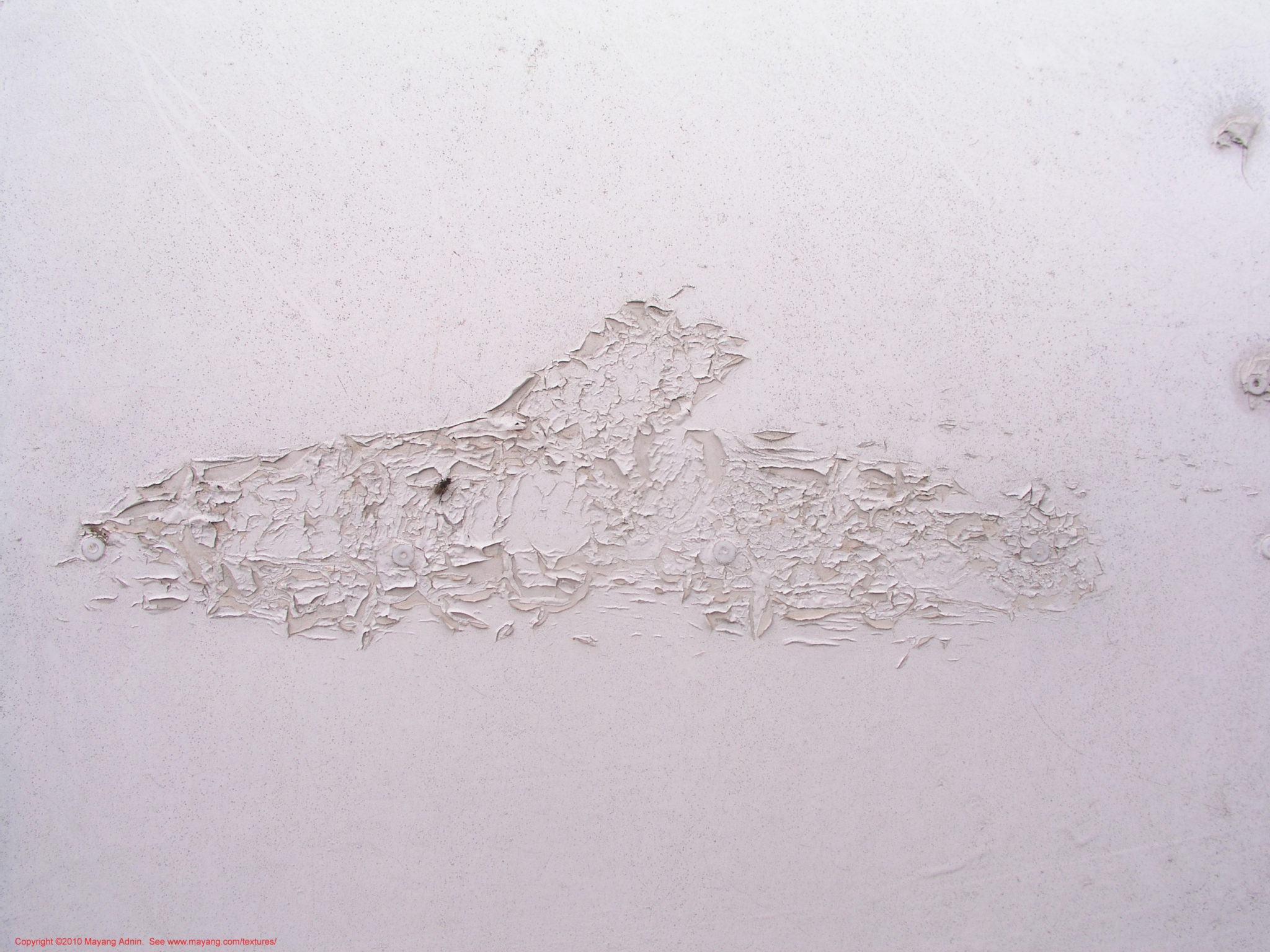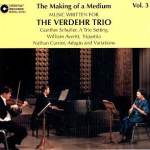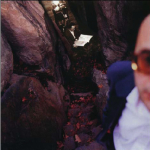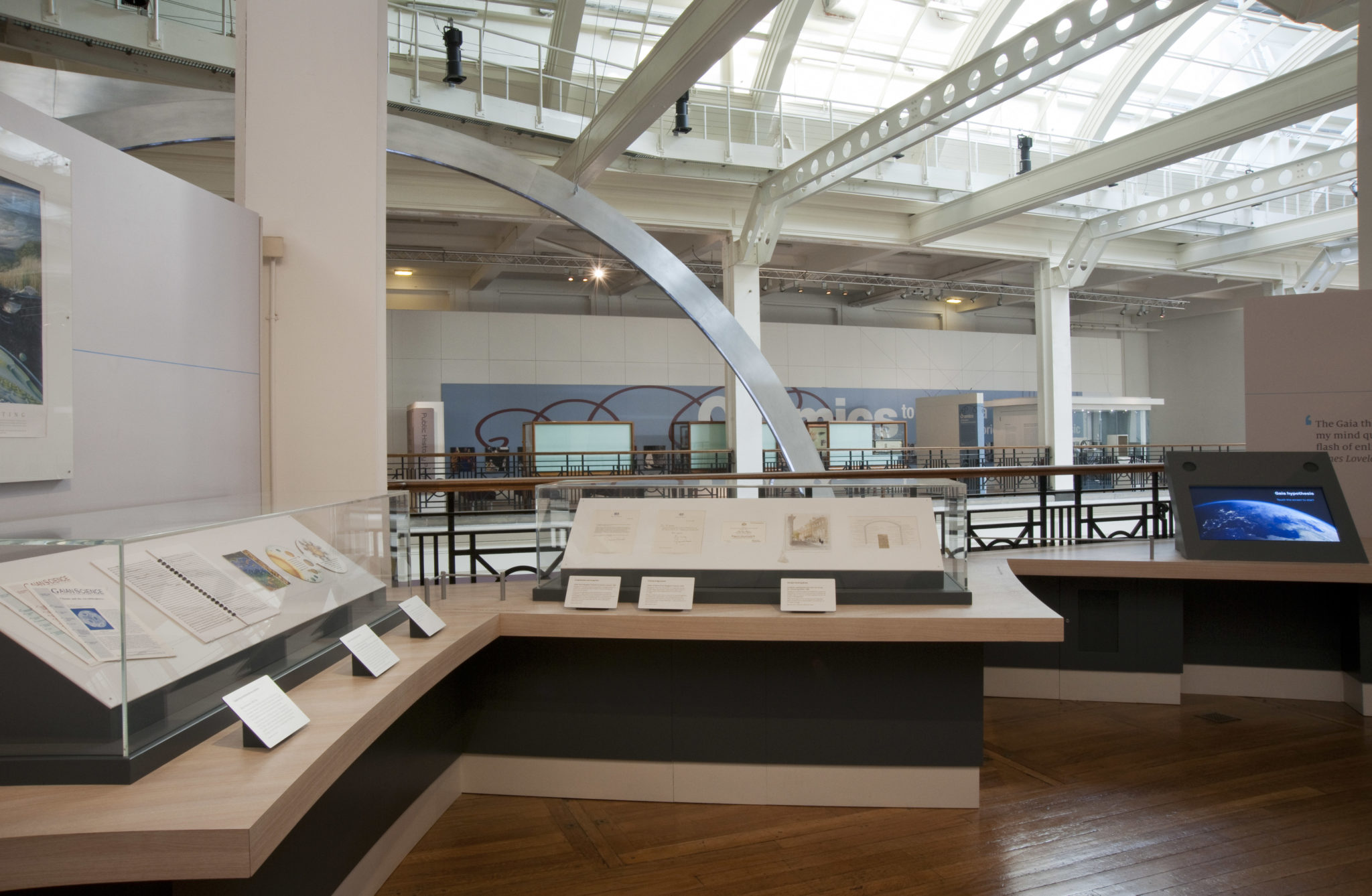Vom Leid der Erde, from its premiere by Marie-Pierre Lamglamet, Berlin Philharmonie, November 2019.
Composer Nathan Currier has had his works performed at prestigious venues, from the Philharmonie in Berlin, to David Geffen Hall at Lincoln Center in New York, to IRCAM in Paris. He has won prizes such as the Rome Prize, Guggenheim, and American Academy of Arts & Letters’ Academy Award. Other grants and awards he has received include the International Sackler Prize, the National Endowment for the Arts, the New York Foundation for the Arts, and the Fulbright program, Fromm Foundation, Charles Ives, Barlow, and ASCAP Prize.
Hear excerpts from Chants and Dances, broadcast on National Public Radio
Saint Paul Chamber Orchestra
Hugh Woolf, conducting
Chants and Dances
(excerpt) Mvts. 1, 2, 3, 6
Mvt. 1 Chant
Mvt. 2 Dance
Mvt. 3 Chant
Mvt. 6 Dance
Currier studied at Juilliard and Peabody and was the Leonard Bernstein Fellow in composition at Tanglewood. He also received a Diploma with First Prize from the Royal Conservatory of Belgium. The diversity of his teachers - Joseph Schwantner, Frederic Rzweski, David Diamond, Bernard Rands and Steven Albert - reflects the encompassing palette of his music.
His first commissioned work - Adagio and Variations, a large set of variations for violin, clarinet and piano - was called 'a piece of genius' by the critic at its premiere by the Verdehr Trio.
Other early works include chamber pieces such as A Musical Banquet. The work was a winner of the International Barlow Prize.
Also, Tanz Nachtanz, a clarinet quintet commissioned by the Chelsea Ensemble, and The Quartet Book, commissioned by The Shanghai Quartet.
Hear a brief excerpt from Tanz Nachtanz:
Soon afterward Currier composed A Kafka Cantata, a one act monodrama for tenor Paul Sperry. After its premiere in Pittsburgh the music critic ranked it as the #1 classical music event of the year in the city.
Little Fable, from A Kafka Cantata, with Paul Sperry, tenor, Nathan Currier conducting
Around this time he also began a long collaboration with harpist Marie-Pierre Langlamet, harpist of the Berlin Philharmonic. This led to his writing a wide variety of works with harp, such as the chamber works A Sambuca Sonata, recorded on the Chandos label, Possum Wakes from Playing Dead, commissioned by the Berlin Philharmonic, A Nursery Sleep, commissioned by Concert Artists Guild, and his quintet Thirty Little Pictures of Time Passing, premiered as part of the Berlin Philharmonic’s chamber music series.
Excerpts from various works composed for harpist Marie-Pierre Langlamet:
A Sambuca Sonata, Mvt. 1, opening
Possum Wakes from Playing Dead, opening
Thirty Little Pictures of Time Passing, #1
Thirty Little Pictures of Time Passing, Part 3, opening
A Nursery Sleep, Mvt. 4, ending
Hildegard's Symphony, performed by the Simon Bolivar Orchestra with Marie-Pierre Langlamet:
Hildegard's Symphony, performed by the Simon Bolivar Orchestra with Marie-Pierre Langlamet:
Hildegard's Symphony 2012 premiere video
Currier is an accomplished pianist, having won the Silver Medal in the International Piano Recording Competition in his early twenties, for a performance of Bach's 'Goldberg Variations'. A recording of Currier performing his piano sonata From the Grotto on New World Records was praised for its "over the top virtuosity” in Fanfare.
Listen to Mvt. 5 of From the Grotto in a recording by the composer on New World Records:
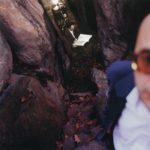
An important work of Currier's is the oratorio Gaian Variations, his largest. As Currier was in the middle of working on his score, more than 1,000 scientists from over 100 countries came together under the auspices of the United Nations to sign a Declaration which states at the outset,"The Earth System behaves as a single, self-regulating system." The primary assertion of James Lovelock and Lynn Margulis in what they had initially called the Gaia hypothesis - now Gaia theory - had gradually become accepted wisdom, despite the relentless criticism of figures like neo-Darwinist Richard Dawkins. Gaian Variations is a work that celebrates and helps to communicate Gaia theory.
At its premiere, the orchestra stopped playing mid-concert. The orchestra claimed it was heading into overtime. The interrupted premiere gave rise to litigation, only fully resolved in 2017, more than a decade after the event.
This moving painting, Looming Atmospheres, a collaboration with artist Suzan Woodruff, used the thematic material of Gaian Variations:
Another outgrowth of Gaian Variations is that Currier soon afterward became directly involved with science itself, also becoming active in a wide variety of climate-related initiatives around the same time.
When NASA celebrated the 50th Anniversary of its exobiology program, the keynote speakers were Gaia theory founders James Lovelock and Lynn Margulis, and Margulis cited a passage from Paul Lowman's Life's Tectonics (MIT Press, 2011), of which Currier was the co-author.
Works list
VOM LEID DER ERDE for harp solo with prerecorded materials (harp, Aeolian wind-harp, great horned owl, red-winged blackbird, and American toad). Commissioned by the Jungekammerphilharmonie Berlin, for Marie-Pierre Langlamet, harp. Premiere at the Berlin Philharmonie, October 9, 2019. 18 minutes. 2019.
COSMIC TRICKSTER for bassoon and string quartet. For the Dover String Quartet with William Short, Principal Bassoon of the Metropolitan Opera Orchestra. 9 minutes. 2017.
SERIOUS BUT NOT DESPERATE WALTZ for fl, hrp, vln, vla, vc, cb, pno. Written for a group of Berlin Philharmonic principals. Premiered at the DiMenna Center, New York, NY, November 8, 2016. 5 minutes. 2016.
CELLO SONATA for cello with piano. 20 minutes. 2016.
HERALDING THE ANTHROPOCENE for solo trumpet with 16 recorded trumpets. For a collaborative art installation with Suzan Woodruff. recorded and performed by Gareth Flowers, 2015. 11 min. 2015.
TOMORROW, AGAMEMNON? for baritone, 2 male actors, piano (or ensemble). Written for a Symphony Space event called November 21, 1963: The Day Before. premiered 11/8/2013, Symphony Space, New York, NY. 5 min. 2013.
LOOMING ATMOSPHERES A collaboration with painter Suzan Woodruff, a painting-film that has been “choreographed,” edited, and scored by Nathan Currier. Exhibited at the Katherine Cone Gallery, October, 2013, Los Angeles, CA. 2013.
SYMPHONY, ‘HILDEGARD’S SYMPHONY', for orchestra with harp solo. Commissioned by Marie-Pierre Langlamet with the support of the National Endowment for the Arts. In five movements. Scoring: 3333/4331/percussion (2), timpani, piano, strings, harp solo. Premiered June 1, 2012, by the Simon Bolivar Orchestra, Caracas, Venezuela, with Marie-Pierre Langlamet, harp, Cesar Ivan Lara, conductor. About 38 minutes. 2012.
FROG AND TOAD CHACONNE for solo violin, Bufo Americanus (the American toad), as well as other toads and frogs, prerecorded. Commissioned by Cornelius Dufallo. Duration: 15 minutes. 2012.
AT THE RIVERS for baritone and piano. Based on the Robert Lowry gospel, and meant to be paired with the earlier settings by Charles Ives and Aaron Copland. Commissioned by the Music on the Hill Summer Music Festival, Providence, Rhode Island. Premiered June 18th, 2011, Rene de la Garza, baritone, Nathan Currier, piano. Duration: circa 7 minutes. 2011.
FALLING STARS for baritone, flute (doubling on piccolo and alto flute), viola, cello and piano. Text by Suzanne Cleary. Commissioned by the Monadnock Music Festival, and first performed July 22nd and July 23rd, 2010, Monadnock Music Festival, Peterborough, New Hampshire. Duration: circa 7 minutes. 2010.
PIANO CONCERTO International Sackler Prize Commission. Scored for piano soloist with 3 fl. (3. doubles on picc., 2. doubles on alto fl., picc.), 3 ob. (3. doubles on E.H.), 2 cl. (2. doubles on B. cl.), 2 bsn. (2. doubles on Cbsn.)/4 hrn. (2 offstage/2 onstage), 4 tpt in C (1. and 2. double on picc. tpt. in Bb), 2 tenor trb., 2 bass trb./ 1 percussion player/ timpani/celli (2 players), bassi (2 players). Premiered March 21/22, 2010, Stamford/Storrs, Connecticut. 27 minutes. 2009.
DOROTHY’S DINNER for string quartet with four actors. Written for Ethel. 34 minutes. 2009.
THE LAWS FOREVER HIDDEN for soprano with piano (the work also includes a male spoken part, performable by the pianist: when performed with a woman pianist, a separate male speaker should be used). Composed on texts by the composer. Premiered April 22nd, 2007, Philadelphia. c. 35 minutes. 2007.
POSSUM WAKES FROM PLAYING DEAD for harp and cello, commissioned by the Berlin Philharmonic for Marie-Pierre Langlamet, principal harp. Premiered September 30th, 2008, Philharmonie, Kammersaale, Berlin. c. 12 minutes. 2006.
WAR MUSIC a large theatrical work using texts of Christopher Logue. Libretto by Nathan Currier and Christopher Logue. Winner, Virginia Foundation for the Humanities Grant. Also funded by the Rhode Island Foundation. The work calls for actors and baritone soloist, as well as an ensemble of flute (doubles on picc./alto flute), chromatic harmonica (C,D, Eb), trumpet in C (doubles on picc. tpt. in Bb), trombone, keyboards (piano/synthesizer), percussion, violin, viola, bass. September 2005 premiere in Providence was cancelled – premier upcoming. 2 hours and 20 minutes. 2005.
GAIAN VARIATIONS oratorio on texts of James Lovelock, Loren Eiseley, and Lewis Thomas. An evening-lengthed work for vocal soloists - soprano, alto, tenor, bass, - and piano soloist, along with chamber choir and full chorus, and large orchestra made up of 5 fl. (4.,5. on picc.), 4 ob. (3.,4. on E.H.), 4 cl. (2. on Eb cl., 4. on B. cl.), 4 bsn. (4. on Cbsn.)/4 hrn., 4 tpt in C (1. on tpt in D and picc. tpt. in Bb), 4 trb.,tba/ 3 percussion, timpani/ piano (piano 2.), harpsichord, synthesizer, organ/ banjo, harmonica, electric guitar (can be performed on synthesizer if necessary)/ strings. Premiered on April 21st, 2004, Avery Fisher Hall, Lincoln Center, New York. 2 hours and five minutes. 2003.
A SIMPLE SONATA for piano solo. For Laura-Gray Street. In two movements. Rather easy to play. c. 6 minutes. 2002.
CITY LIFE; A Symphony in Eleven Parts for orchestra. scored for 3 fl., 2 ob., 3 cl., bass cl., alto sax., 2 bsn., 4 hrn., 3 trpt., 2 trb., 1 tba., perc. (1), timp., hrp., celeste, pno., strings. A reworking of Symphony in Eleven Chapters, 1985. c. 25 minutes. 2002.
LOOKING OUT a collaborative song cycle, with texts composed by poet Laura-Gray Street. Commissioned by the New York Festival of Song, for a millenium celebration concert, March 23rd, 2000. For mezzo-soprano, tenor, clarinet, french horn, cello and piano. 14 minutes. 1999.
THIRTY LITTLE PICTURES OF TIME PASSING for flute, harp, violin, viola and cello. Commissioned for the Berlin Philharmonic String Trio [Romano Tommasini, Wolfgang Talirz, and David Reiniker] along with principal flutist Emmanuel Pahud and principal harpist Marie-Pierre Langlamet. Premiere, Philharmonie, Berlin, March, 2004. 20 minutes. 1998.
THE LAST THOUGHTS OF GREGOR SAMSA for string orchestra. Commissioned by the Metamorphosen Chamber Orchestra. Premiered at Jordan Hall, Boston. c. 12 minutes. 1997.
BECKMESSER'S REVENGE for full orchestra: 3 fl.,3 ob., 3 cl.,3 bsn., 4 hrn.,3 trpt.,3 trb., 1 tba., perc. (3), timp., piano, strings. c. 8 minutes. Winner, American Composers Orchestra Reading series. 1997.
ÉTUDE CHACONNE for piano solo. Commissioned by Diane Walsh. Premiered at Miller Theater, New York City. c. 13 minutes. 1996.
IN A BURNING FOREST for violin, clarinet and piano. Commissioned by the
Verdehr Trio. Premiered in Yugoslavia. c. 22 minutes. 1996
FROM THE GROTTO; A SONATA FOR MOZART'S SECRET SOCIETY
for piano solo. Recorded CRI Records; re-issued, New World records. Composed with the support of the American Academy in Rome. Premiered in Rome, 1996. c. 30 minutes. 1995.
SONATA FOR FLUTE AND PIANO in two movements. Composed with the support of the Guggenheim foundation. Premiered in Rome, 1996. c. 9 minutes. 1995.
HUSH CRIES THE LAMB for violin and piano. Composed with the support of the Guggenheim foundation. Premiered in Rome, 1996. c. 12 minutes. 1993.
SONG FROM THE DEAD SEA for mixed chorus with orchestra. Text from the Dead Sea Scrolls. Minimum duration c. 6 1/2 minutes (meant to be repeated; thus, it could be 13 minutes, etc.). Commissioned by the Juilliard Preparatory Division Chorus & Orchestra. Premiered at the Juilliard Theater, Lincoln Center, New York City. 1993.
SARAH'S LAUGH for solo guitar. Commissioned by William Matthews. Repertory piece for International Guitar Competition, Templin, Germany. c. 10 minutes. 1993.
A SAMBUCA SONATA for flute, viola and harp. Recorded on Chandos records. c. 15 minutes. Premiered in Paris, 1996. Also performed at the Berlin Philharmonic, at Lincoln Center’s A Great Day In New York Festival, and in Norway, Sweden, etc. 1993.
A QUILT CANZONA for piano, left hand. Written for pianist Leon Fleisher. c. 7 minutes. 1993.
TWO PIECES FOR HARP for harp solo. Commissioned by the Barlow Foundation for Marie-Pierre Langlamet. Premiered at Merkin Hall, New York City. c. 19 minutes. 1992.
A KAFKA CANTATA for tenor with ensemble. Commissioned by Paul Sperry. Scored for fl., cl., vln., vla., vc., piano, perc. Uses texts of Franz Kafka, in a dramatic setting, based on J.S. Bach's "Coffee Cantata". Premiered in Pittsburgh, February, 1993. c. 35 minutes. 1992.
HYMN TO ROSA VALADO'S DYING EARTH for string orchestra. Commissioned by artist Rosa Valado for an installation/exhibit. minimum duration c. 6
minutes (meant to be repeated or looped indefinitely).1992.
A NURSERY SLEEP for harp, flute and cello. Commissioned by Concert Artists Guild. c. 22 minutes. 1991.
THE QUARTET BOOK for string quartet. Commissioned by the Shanghai Quartet, funded by Chamber Music America. Premiered in Richmond, VA. c. 24 minutes. 1990.
TANZ-NACHTANZ for clarinet and string quartet. Commissioned by the Chelsea Ensemble, funded by the Jerome Foundation. Premiered Carnegie Recital Hall, New York City. c. 20 minutes. 1990.
ENTROPIC DEVELOPMENTS for violin, clarinet and piano. Commissioned by the Verdehr Trio. Premiered Buffalo, New York. c. 12 minutes. 1989.
CHANTS AND DANCES for orchestra. scored for 1 fl., 2 ob., 2 cl., 1 hrn., 1 trpt., perc.(one player), accordion, piano, strings. Winner of the 1989 ASCAP Awards, and the 1989 Juilliard Orchestral Composition Prize. Premiered at Alice Tully Hall, Lincoln Center. Broadcast Nationally on NPR in a performance by the Saint Paul Chamber Orchestra, 2000. c. 19 minutes. 1989.
OVERLAPPINGS for fl.,cl., alto sax., trb., perc., piano 4 hands, vln., vc. Premiered at the Juilliard School, New York City, 1989. c. 9 minutes. 1988.
VARIATIONS for violin, clarinet and piano. Commissioned by the Verdehr Trio. Recorded on Crystal Records. Premiered in India, 1988. c. 33 minutes. 1987.
NOTHING ABIDES for soprano with fl., eng. hrn., cl., vc., hrp., pno., perc. Song cycle on texts of Lucretius. Winner of the International Olympia Competition in Athens. Premiered at the Juilliard School, New York City. c.18 minutes. 1987.
A MUSICAL BANQUET for violin, cello and piano. Winner, International Barlow Prize. Premiered at Alice Tully Hall, Lincoln Center, 1987. c. 26 minutes. 1987.
ADAGIO for violin, clarinet and piano. This later became part of the ADAGIO AND VARIATIONS listed above. Premiered at the Juilliard School. c. 5 minutes. 1986.
FROM THE MOON'S ORCHESTRA for mezzo soprano with piano. A song cycle on texts of John Gould Fletcher. Premiered at the Juilliard School, New York City. c. 16 minutes. 1986.
THREE AMERICAN SONGS for baritone with piano. Premiered at the Juilliard School, New York City. c. 6 minutes. 1985.
COMMENTARY MASS for chorus & str. quart., hrp., celeste, guit., glock.
Premiered at the Juilliard School, New York City. 14 minutes. 1985.
STRING QUARTET in three movements. Premiered at Merkin Hall, New York City. c. 23 minutes. 1985.
PIANO SONATA in seven movements. Premiered at CAMI Hall, New York City. c. 20 minutes. 1984.
THE CICADA for baritone solo with orchestra. scored for 2 fl., 2 ob., 2 cl., 2 bsn., 2 hrn., 2 trpt., 2 trb., 1 tba., perc., timp., hrp., strings. Text of Ou -yang Hsiu.
Readings by Juilliard Orchestra and Symphony. c. 35 minutes. 1984.
SALTIMBANQUES; FOUR PIECES FOR ORCHESTRA scored for 2 fl., 2 ob., 2 cl., 2 bsn., 2 hrn., 2 trpt., 2 trb., timp., gong, strings. c. 16 minutes. 1982.
THIRTY THREE PIANO PIECES for solo piano. Premiered at the Peabody Institute. c. 30 minutes. 1980.
PRESTO FUGACIOUS for solo piano. c. 4 minutes. 1973.
contact
Use the form to contact Nathan
Keep in touch
You can use the following information to get in touch
You can subscribe
